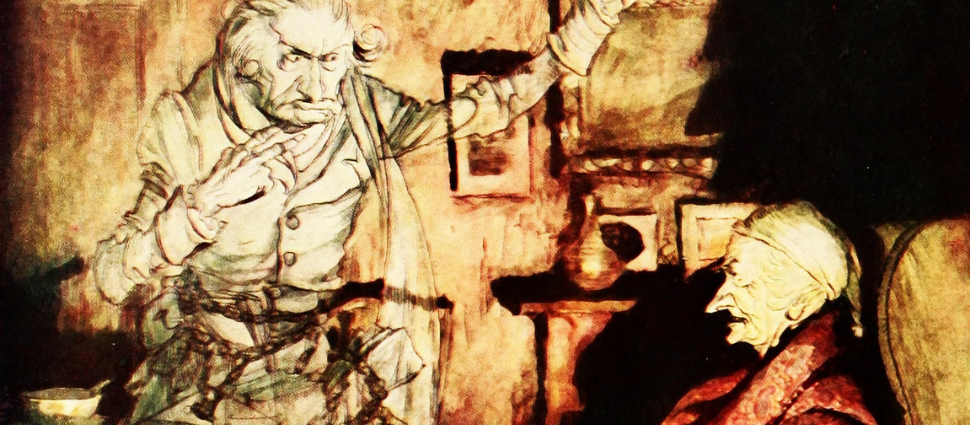Hell: They Have No Bowels

While rereading Charles Dickens’s A Christmas Carol I recently read something I had forgotten. When Jacob Marley appeared to Scrooge his body was transparent, so that Scrooge could see not only the front of his long deceased partner’s waistcoat but the back of it too! But then this line appears, “Scrooge had often heard it said that Marley had no bowels, but he had never believed it until now.” No bowels? What is that supposed to mean?
It’s a bit perplexing until you begin to think Biblically. Take a look at Colossians 3:12. It says, “Put on then, as God’s chosen ones, holy and beloved, compassionate hearts…” Now, a literal translation of compassionate hearts will read a bit differently. It will actually translate oiktirmou splanchna as “bowels of compassion.” And that’s not the only place we find this expression in Scripture. I’ll give one further example, but I could give ten more. In I John 3:17 we read, “But if anyone has the world’s goods and sees his brother in need, yet closes his heart against him, how does God’s love abide in him?” Now, a literal translation would change heart to, you guessed it, bowels (splanchna)!
But someone may ask, “Why then do we continue to read ‘heart’ in these other translations?” The answer to that is not difficult. In our modern world, compassion is associated with the heart. We talk of opening or closing our heart to someone, not our bowels! So, translators who render splanchna as heart are doing those who cannot read Greek and do not know the etymology of Greek words a wonderful service. However, the fact remains that in the ancient world compassion was associated with the bowels. This is why splanchna can be translated bowels of compassion in the texts above and we can read of Judas in Acts 1:18, “[all] his bowels [splanchna] gushed out.”
Now, what did Dickens mean when he described Marley as having no bowels? Well, quite simply, he was a man lacking in compassion. But we might go even further. Perhaps Dickens had I John 3:17 in mind which says that a man who closes his bowels toward another in need demonstrates that God’s love does not abide in him. Surely as we look upon Marley in the first stave of Dickens’s classic tale he is a spirit in torment because of the chain he forged in life. Marley himself said to ol’ Scrooge, “[in] life my spirit never roved beyond the narrow limits of our money changing hole; and weary journeys lie before me!”
Perhaps to make his point even more poignant, Dickens describes Scrooge as looking out the window after Marley had gone. What he saw were other spirits like Marley and “the misery with them all was, clearly, that they sought to interfere, for good, in human matters, and had lost the power forever.” In Dickens’s imaginary tale, they were consigned to hell because in life they had closed their bowels to those in need.
But we know that good works do not save us or damn us. What damns the damned is their being in Adam. However, if we are in Christ, as God’s chosen ones, holy and beloved, as Colossians 3:12 says, then we will “put on…bowels of compassion.” In other words, if we are in Christ what was said of Marley will never be said of us, he “had no bowels.”
Jeffrey A. Stivason is the pastor of Grace Reformed Presbyterian Church in Gibsonia, PA. He also holds a Ph.D. in systematic theology from Westminster Theological Seminary in Philadelphia, PA. Jeff is the author of From Inscrutability to Concursus (P&R), he has contributed to The Jonathan Edwards Encyclopedia (Eerdmans) and is the Executive Editor for Place for Truth.





